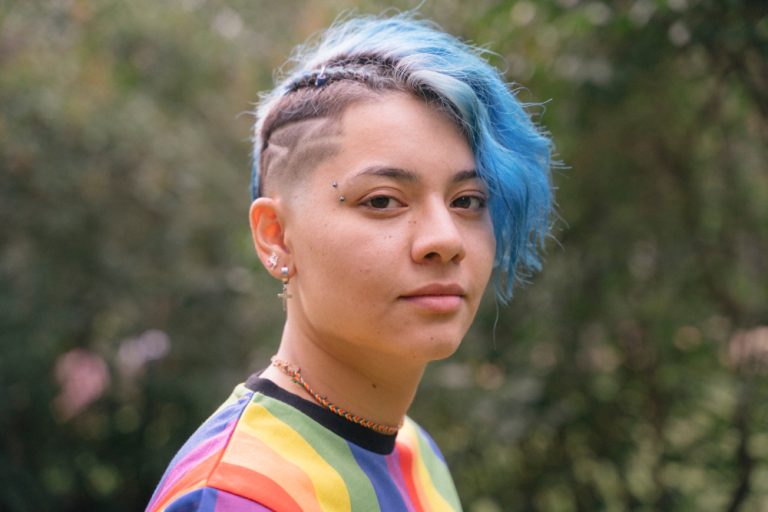INFPs’ first cognitive function is introversion, but if you have ever been around an INFP, you might have questioned if they are a mistype and are supposed to be extroverts. That is because they possess both traits – like an ambivert. But is there something as an ambivert INFP?
INFPs can be ambiverts because they are introverts who enjoy their own company. Being alone fuels their mental and emotional energy. INFPs also genuinely love being around people and thrive in social settings, which makes their personalities confusing and complex, giving them the label of ambiverts.
To understand why INFPs are introverts that often act or seem like extroverts, you must understand how their personality functions and why they do things a specific way, making them ambiverts.
Can INFPs Be Ambiverts?
The straightforward answer here is yes, INFPs can be ambiverts. But you are probably asking, how is that possible if an INFPs cognitive function is introversion? The answer is not complicated, but since the INFP personality is slightly complex because of how they function, here are some points to understand what creates the ambivert in them:
INFPs Crave Connection With People
Many introverts find that they don’t need to be around people or seek connections to feel good. Introverts are typically happier alone in their own company, where they don’t have to interact and feel drained if they do. INFPs are introverts who love alone time but genuinely crave connection with others. It makes them feel energized, excited and validated.
INFPs seek interactions that are deep, soul-touching, and meaningful. They want connections where they feel safe and open up about personal matters. They want to have fulfilling conversations with others that create a space for love, learning, growth, and entertainment.
An INFP will enjoy time alone until they crave social interaction, which will tire them out mentally and emotionally, and then they will seek time alone again. The cycle is what gives light to the ambivert INFPs.
INFPs Love To Talk
INFPs enjoy talking and having discussions. You will find many introverts who prefer to speak to themselves, run and process their thoughts through their mind without external opinions or suggestions. They like to think and make decisions alone or even have general discussions in their heads because talking to others can be exhausting and superficial.
INFPs are the type of introverts who need time to process their thoughts and emotions alone and work through their minds without people, but they also love to chat. They can talk about an arena of topics and love hearing about others’ experiences. INFPs can chat with you for hours, and they will never run out of things to say, nor will you get bored of them.
Extroverts always prefer to talk to others and run their ideas out loud. Introverts prefer to be alone and process their thoughts without others. INFPs are ambiverts because they use both instances for different situations. They want to talk to people, and once they have an overload of information, they will need time alone to filter through their thoughts.
INFPs Are Incredible Performers
INFPs can be performers and entertainers. It seems contradictory because they are introverts, and when you think of performers, you assume they are extroverts. Performers are constantly around people, they must interact and engage in public, and you would think that someone if someone becomes a performer, they must be an extrovert. But there are many INFP performers.
Celebrities like Johnny Depp, Alicia Keys, and Mary Kate Olsen, are fantastic public performers and are surrounded by people all the time; however, they are introverts with an extrovert exterior, making them ambiverts. They love people, and they appreciate public validation. They want to be seen, heard, and known. INFPs have a desire to be in the spotlight.
The thing with INFPs being performers and dealing with the spotlight is that because of their dominant introversion, and they feel exhausted from the interaction and public eye compared to other extroverted performers. It gives them a strong stand of falling into the ambivert category.
INFPs Are Outgoing
It is not often that you will find an outgoing introvert. Most introverts will do whatever they can to avoid social settings and interactions with people. They don’t enjoy going out and feel happier staying home in their comfort and safe space. If they go out, being around others is not necessary. They love to explore alone and will avoid talking to people. INFPs are the opposite.
INFPs genuinely enjoy interactions, albeit they are introverts. They look for opportunities to go out and have social interactions with others. They want to talk to people and do activities that include others. They genuinely love engaging and are often the ones who create the fun. People are naturally drawn to them due to their outgoing, bubbly personalities.
Not all INFPs are way, nor are the INFPs who are always like that. As much as INFPs are outgoing and enjoy being around people, eventually, they will feel drained and overstimulated, and their introverted function will take over. They then require time alone to process and recharge.
INFPs Can Get Lonely
Similar to INFPs being outgoing, they can also get lonely being introverted for extended periods. An introvert will not typically feel this way; if they do, a short phone call or passing someone in the grocery store with a five-minute chat can make up for it. INFPs can feel deeply lonely if they don’t get proper and meaningful human interaction for a long time.
Because of the prominent extroverted and outgoing side of INFPs, they crave connection after periods of basking in their solitude. They get to a point where they need to be surrounded by people or have a deep conversation with a friend.
INFPs are also hopeless romantics who will take steps and make an effort to find love or engage in their relationships. Many introverts find it challenging to make romantic connections because they are reserved and don’t like making the first move. INFPs do not shy away from trying. It can get emotionally exhausting, but they will do it until they need time to recharge.

Are All INFPs Ambiverts?
Ambiverts are people who possess both qualities of introverts and extroverts. It changes according to the situation or the mood of the person. INFPs are cognitive introverts with outwardly extroverted characteristics and are often called terms like social introverts or outgoing introverts. INFPs are the most extroverted introverts of the Meyers Briggs personalities.
Albeit the fact not all INFPs are ambiverts, however, most are. Some INFPs are authentic and genuine introverts, even outwardly. They have all the qualities of natural introverts and are not outgoing or social on any scale. The INFPs who are ambiverts enjoy both sides of the spectrum.
Can An INFP Be Extroverted?
All personalities have introversion and extroversion functions. Sometimes the extroversion function is more dominant, and sometimes you will find that introversion is more prominent. It depends on the person, their mental and emotional health, their interests and desires, and how they prefer to live their life.
The Meyers Briggs personality test is a baseline understanding of the foundation of a person’s character traits and how they show up in their life. It is how a person is born and will always be, but they can pull features from other personalities and use specific functions to act a certain way. People can strengthen some personality characteristics and use each function as they see fit in their lives.
INFPs work the same way. While being an introvert is a natural function of their personality, their other functions can combine to give them a more extroverted front. They can lean into both spectrums as they need at different times in their lives through different experiences.
It is a clear understanding that INFPs can be extroverted, and they generally are because of how the different functions of their personality work. It can be a choice they make; however, the extrovert side of them comes out naturally as pretty dominant sometimes, thus creating a lot of confusion to others about whether they are true introverts or mistyped as extroverts.
Are Extroverted INFPs Truly ENFPs?
Being an INFP is adventurous, and due to the ambivert side, INFPs indulge in a world of experiences. They become extroverts, and when they feel overwhelmed with interactions, they can retreat to solitude. Having extroverted traits does not mean INFPs are supposed to be ENFPs. They can explore both realities according to what they need at specific times.
INFPs are ambiverts because they have a mixture of introversion and extroversion functions. While not all INFPs have prominent extroverted sides, those that do are not mistyped or meant to be ENFPs. There is a clear distinction between INFP and ENFP, which makes you realize why the term ambivert fits some INFPs perfectly. Below are some of those distinctions.
INFPs Are Feelers, And ENFPs Are Thinkers
INFPs function by feeling first. They are more spontaneous, make decisions based on emotion, and don’t analyze things too deeply. They use their intuition and focus on their gut feelings. INFPs explore their internal emotions and see possibilities from that. They show up to the world authentically without much speculation.
ENFPs are speculators who analyze and dissect every situation. They focus on logic and rationality and always consider new projects, experiences, and activities to learn, grow, and process. They make decisions after looking into every angle and possibility instead of moving forward with intuition.
INFPs Work Behind The Scenes, And ENFPs Take The Spotlight
INFPs are not concerned about being in the spotlight, even if they end up there. They love to help people and do good in the world from behind the scenes. Family and friends love them, but INFPs don’t need to make a big noise to gain validation. They function calmly and silently.
ENFPs are typically in the spotlight. They love to be the life of the party and enjoy being loud and at the front of things. They want to be seen and known and feel comfortable being the center of attention.
INFPs Are Serious And ENFPs Are Humorous
INFPs have a more serious manner of dealing with life. They are cautious and aim for perfection. They are careful of what they say and how they say things. They won’t simply let go of something; instead, they will approach it with seriousness and try to sort through experiences and situations in the best way possible.
ENFPs have a lighter way of moving through life. They bring humor to tricky situations and are witty and sarcastic. They will distract themselves and others from serious topics by telling a joke to make light of a problem.
INFPs Are Confident Introverts
INFPs accept their introverted side entirely and are confident that it dominates their personality. They know and understand their introversion and use it to their advantage. They love their solitude and are not afraid to admit that they can go on both sides of the spectrum even though introversion is in their cognitive function.
ENFPs can be slightly confused about their extroverted side and sometimes question whether they are supposed to be introverts. They love and enjoy social interactions but wonder if they are mistyped and should fully embrace their introverted side.
INFPs Are More Emotional Than ENFPs
INFPs are more emotional and are not afraid to express themselves if they are with people they love and trust. ENFPs are not very expressive and prefer to conceal their feelings and create distractions to avoid talking about them or dealing with situations.
Conclusion
From all the information above, it is clear that INFP ambiverts exist. They are a rare and positively complex breed in the personality community with their extroverted introversion. It is interesting to explore their unique personality traits, which include the love of an outgoing social life, which can get overstimulated quickly and need time alone to process their thoughts without anyone around them.






